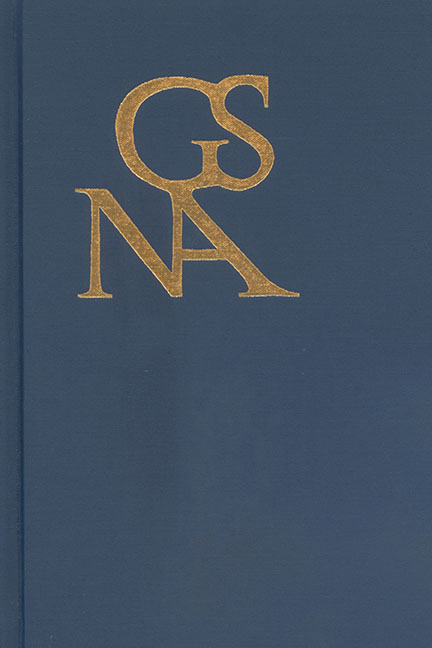Moritz’s Veil: Observation, the Rupture of Individuality, and Magazin Zur Erfahrungsseelenkunde
Published online by Cambridge University Press: 28 October 2020
Summary
THE LATE EIGHTEENTH CENTURY was an era of observation. Whether through the physical structure of the school, emerging practices of scientific observation, or a closer examination of statistics and data, the era's mission was to uncover and unlock the hidden workings of the world. As many have noted, Enlightenment projects were frequently driven by a “totalizing imperative” that attempted to map, locate, and fix subjects in grand systems. For example, statistical observation could monitor the state of the economy, the close study of a plant could categorize it within the Linnaean system, ethnological observation generated examples of human diversity, and measurements taken on opposite sides of the globe proved theories about the solar system. Information and data from these observations demanded new methods of presentation and re-presentation. New tables, charts, maps, graphs, and publications were created to convey, preserve, and reproduce the results of observations. Institutions were reorganized as existing systems for managing and locating materials became overwhelmed.
As Elliott Schreiber argues in The Topography of Modernity, Karl Philipp Moritz is one of the “keenest observers and theorists” of institutional spaces; his use of Spielraum, a fundamental concept that denotes “latitude or scope,” introduces dynamic reconfiguration and constant renewal as a feature of emergent eighteenth-century institutions (Schreiber 5). As dynamic spaces, these institutions are continually produced through crises motivated by the “very impossibility of ever representing absolute totality” (Schreiber 157). In this article, I consider this impossibility within Moritz's writing on the individual. In exploring the “Erinnerungen aus den frühesten Jahren der Kindheit” (memories from the earliest years of childhood), Moritz seeks to discover “die allerersten Eindrücke” (the very first impressions) that form the foundation of all successive memories.
At the launch of Magazin zur Erfahrungsseelenkunde in 1782, Moritz proposes that recounting earliest childhood memories “so getreu wie möglich” (as faithfully as possible) would reveal “die Geschichte seiner Gedanken” (the history of one's thoughts). Like Schreiber's description of modern institutions, the modern individual for Moritz is an “entity to be constructed.” In Moritz's writing on the self, he seeks the “inscrutable, yet irresistible” origins of the individual hidden by the “ultimate blind spot of selfobservation.”
- Type
- Chapter
- Information
- Goethe Yearbook 27 , pp. 47 - 62Publisher: Boydell & BrewerPrint publication year: 2020



